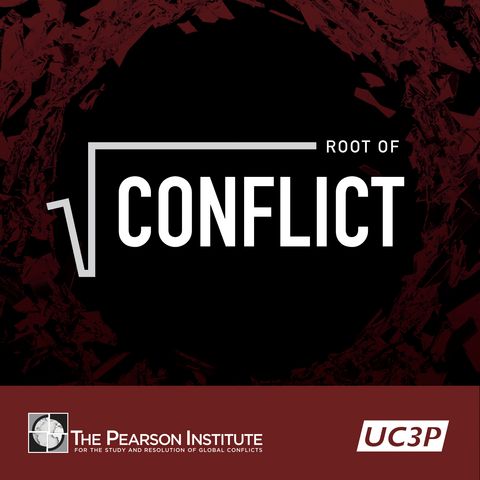
Contactos
Información
Why are some places affected by violence and disorder while others enjoy peace and stability? From the University of Chicago Public Policy Podcasts, “Root of Conflict” analyzes violent conflict around...
mostra másThis series is produced in partnership with the Pearson Institute for the Study and Resolution of Global Conflicts at the Harris School of Public Policy. We're produced and hosted by Hannah Balikci and edited by Nishita Karun.
Learn more about Root of Conflict here.

Why are some places affected by violence and disorder while others enjoy peace and stability? From the University of Chicago Public Policy Podcasts, “Root of Conflict” analyzes violent conflict around...
mostra másThis series is produced in partnership with the Pearson Institute for the Study and Resolution of Global Conflicts at the Harris School of Public Policy. We're produced and hosted by Hannah Balikci and edited by Nishita Karun.
Learn more about Root of Conflict here.
Información
| Autor | UC3P |
| Organización | UC3P |
| Categorías | Política , Ciencias sociales |
| Página web | thepearsoninstitute.org |
| thepearsoninstitute@uchicago.edu |
Copyright 2024 - Spreaker Inc. an iHeartMedia Company
